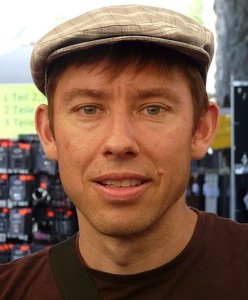“If I call today I’ll probably be the first one to get an appointment in one of the prime time slots in that vast, empty schedule the clinic must have.”
 Jerusalem, October 4 – A resident of Israel’s capital city who apparently has learned nothing from his several decades inhabiting Israeli society remains under the bizarre impression that when others assured him that certain phenomena will occur “aḥarei haḥaggim,” or “after the holidays,” they meant in the current period immediately following several weeks packed with the Jewish observations of Rosh HaShanah, Yom Kippur, and Sukkot, rather than the practical sense of the phrase, which denotes “beyond some vague point in the amorphous future but definitely not anytime soon.”
Jerusalem, October 4 – A resident of Israel’s capital city who apparently has learned nothing from his several decades inhabiting Israeli society remains under the bizarre impression that when others assured him that certain phenomena will occur “aḥarei haḥaggim,” or “after the holidays,” they meant in the current period immediately following several weeks packed with the Jewish observations of Rosh HaShanah, Yom Kippur, and Sukkot, rather than the practical sense of the phrase, which denotes “beyond some vague point in the amorphous future but definitely not anytime soon.”
The density of holidays during the Jewish month of Tishrei, which generally coincides with parts of September and October in the Gregorian civil calendar, creates a psychological barrier that causes numerous Israelis to postpone plans or expectations regarding upcoming events to “after the holidays,” by which the vast majority of whom mean “a time I prefer to think of as many, many months away, please desist from asking me about it you’re making me uncomfortable.” To Itai Shalev, however, the phrase means the exact words it contains, a fact that experts predict will cause him no end of confusion, disappointment, frustration, and occasional relief in the days and weeks ahead.
“I can’t wait to get together with my neighbors,” stated the 40-year-old. “Everyone in the building has been saying we should really have a pot luck barbecue or picnic, but things are just so hectic, let’s do it after the holidays. Well, wouldn’t you know it, the holidays have passed, and now we can put this thing together. I’d like to know who’s organizing it so I can call dibs on bringing dessert. I think the whole crowd will love my sugar-free coleslaw.”
“Also I need to have some dental imaging done, nothing big, but the receptionist said call after the holidays,” he continued. “I’m not exactly sure what the thinking there was, because it’s not like people need less dental care now. If anything, they probably need more, considering all the goodies that are such a big part of the celebrations. Still, if I call today I’ll probably be the first one to get an appointment in one of the prime time slots in that vast, empty schedule they must have. It probably won’t last if I don’t hurry.”
Shalev has been known to misinterpret other commonly-used phrases, experts observe. “He’s been repeatedly burned by store staff saying, ‘In a minute,’ and visitors or delivery drivers assuring him they’ll be there right away,” noted behavioral scientist Hugh Jass. “It never happens in the literal sense. He’ll get it eventually, inshallah.”
Please support our work through Patreon.




